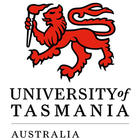Graduate Diploma of Professional Accounting
Graduate Diploma of Professional Accounting
The Graduate Diploma in Professional Accounting is a 12 month full-time or part-time equivalent course offered by the Tasmanian School of Business and Economics. The course is full fee-paying, which means that you will be charged at the full fee-paying rate listed for each unit. This course provides training in…
Categories
COURSE DESCRIPTION
The Graduate Diploma in Professional Accounting is a 12 month full-time or part-time equivalent course offered by the Tasmanian School of Business and Economics. The course is full fee-paying, which means that you will be charged at the full fee-paying rate listed for each unit.
This course provides training in accounting for those who do not have an accounting background. Successful completion of this course will give students a solid foundation in accounting fundamentals, and can be built on through further studies to achieve the level of competency required to become an accredited accountant.
Course objectives
The Professional Accounting suite of courses are primarily designed for graduates with an undergraduate degree, from disciplines other than an accounting major, to develop skills to meet the entry requirements necessary for Associate Membership of the professional accounting bodies. Students are treated as adult learners with a wealth of experience and with no accounting knowledge.
The course utilises a ‘flipped” classroom to deliver content, with workshops used to develop student learning, communication and application skills. The accounting profession now places a strong emphasis on the importance of “soft skills”, and these as well as critical problem solving skills are best practised in a workshop environment.
Through this context, students develop skills to question and find solutions by applying their technical knowledge and ability to research authentic situations in the accounting context. Students also learn to interact within diverse groups and communicate their findings to both accountants and non-accountants through the most appropriate method.
Learning Outcomes
1 Critically evaluate strategies and make high-level judgments relating to professional accounting practice, while applying a sustainable business model lens
2 Justify business ideas in various contexts using effective oral and written communication techniques with both accounting and non-accounting professionals
3 Research and analyse business performance and impacts to make recommendations to decision makers
4 Apply collaborative, cooperative and teamwork skills in team settings to justify business advice.
5 Seek and engage with feedback to reflect on business advice and for professional improvement.
Course structure
To graduate from the Graduate Diploma of Professional Accounting course, a student must satisfactorily complete 100 credit points of study comprising:
50 credit points of transition units from the Master of Professional Accounting
50 credit points of core units from the Master of Professional Accounting
REQUIREMENTS
Australian bachelor degree or equivalent.
IELTS 6.5 (no individual band less than 6.0)
TOEFL (iBT) 88 (no skill below: Reading 16; Listening 16; Speaking 18; Writing 22)
PTE Academic 58 with no score lower than 50
Successful completion of English for Academic Purposes 2 at the University of Tasmania with a minimum overall score of 65% (no individual score less than 60%)
EDUCATIONAL INSTITUTION
The University of Tasmania was officially founded on 1st January 1890 and is located at Sandy Bay, Tasmania. In addition to the main campus at Sandy Bay, it also operates out of the Newnham Campus and the Cradle Coast Campus. The most popular courses offered are the environmental studies that include wilderness management, marine sciences and indigenous studies in Tasmanian literature. Other unconventional courses include agriculture development, studies on the community and population and ocean study programs. The university also comprises of a Music Conservatorium, Art school and a School of Clinical studies.




